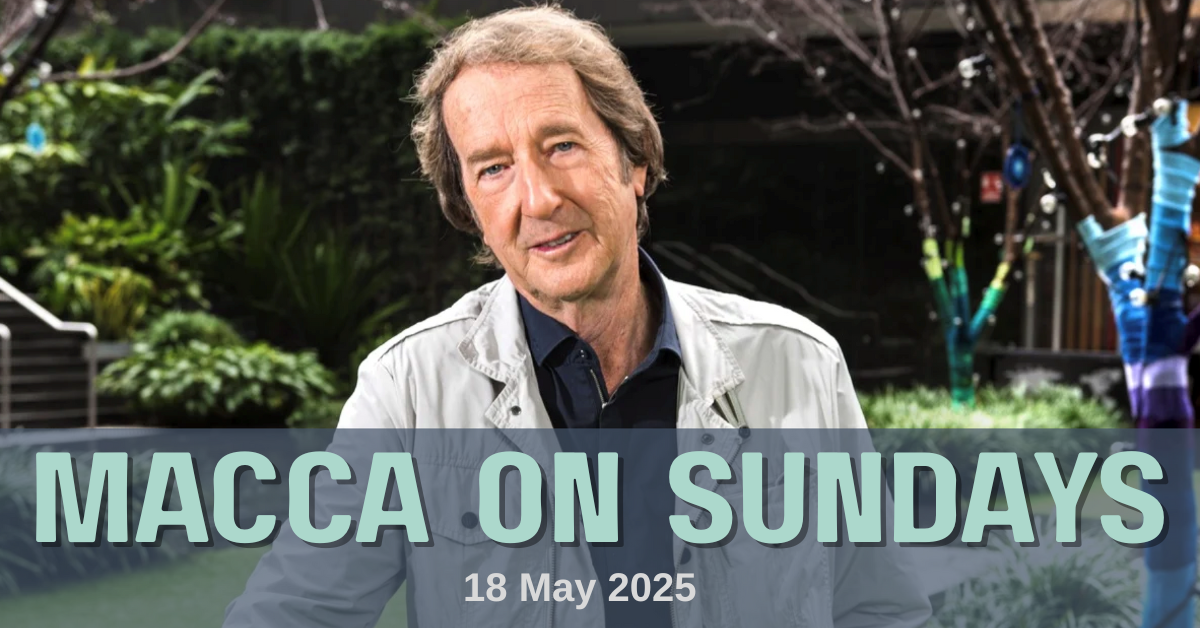
- One of the first calls came from flood-weary Kempsey on the NSW mid-north coast, where heavy rain last week sent the Macleay River over its levee. A local café owner described the town’s sodden CBD on Friday: waist-deep water in the streets, supermarket shutters down, and volunteers ferrying elderly residents to higher ground by tinny. By Saturday afternoon the power was finally back on – and she flung open her doors immediately. “No one else was open and people were hungry,” she laughed, recounting how she served coffee by gas burner and meat pies by candlelight to a crowd of mud-splattered locals. Despite the damage (muddy floors, waterlogged fridges), her voice brimmed with optimism. “We’re a tough little town – we’ll mop up and get on with it,” she insisted, thanking the SES and “mud army” of neighbors who turned up with mops and muffins. It was a portrait of community spirit in crisis, painted in equal parts hardship and heart.
- In a completely different scene, a call from the Sydney Writers’ Festival captured a cultural high. Ange – a first-time caller and an aspiring novelist – phoned in from a buzzing Wharf Theatre at Walsh Bay. She had just stepped off stage from a dawn poetry reading and was still riding the excitement. “It’s like a rock concert for book lovers,” she said of the festival, describing crowds huddled under umbrellas between venues (a drizzly Sydney morning didn’t dampen anyone’s enthusiasm). The theme this year was “In This Together,” and Ange noted how fitting it felt: bestselling authors, local poets, and readers shoulder-to-shoulder, swapping stories in the rain. She recounted a magical Festival moment the night before – an open-air yarning circle led by First Nations storytellers, flames crackling in a fire pit as ancient and new tales intertwined. Macca chuckled that she was “broadcasting from literary ground zero,” and Ange admitted she’d grown up listening to the show from country NSW. Her call offered a joyful glimpse into Australia’s literary heart, bridging city and bush through shared love of story.
- Heading west, a grain grower in Western Australia’s wheatbelt phoned in from a tractor cab, giving a stark paddock update. He was dry-sowing wheat into parched red soil on a farm near Mingenew, north of Perth. After a promising early April drizzle, not a drop had fallen in weeks. “We’re planting on a promise and a prayer,” he said wryly, running 12-metre bars through powdery topsoil. He’s putting in 80 kilograms of seed per hectare with minimal fertiliser – “no point in wasting the good stuff if the rain won’t come,” he noted. Some neighbours have held off planting altogether, but his attitude was pragmatic. By his calculation, if a decent front doesn’t sweep through by mid-June, the canola and wheat won’t sprout at all. “We’ll know by the winter solstice who bet right and who bet wrong,” he told Macca, his tone equal parts concern and dry humour. The image of WA’s broadacre farmers gambling on weather – silos empty, fields seeded in hope – spoke to the quiet tension of the season.
- From south-western Queensland, a much more dire tale of weather came through. A cattlewoman near Charleville shared that her family station hasn’t seen proper rain since January. Now early winter, the Mitchell grass plains have crisped to brown stubble and the waterholes are nearly dust. Each morning she’s out in a paddock of gidgee trees, chainsaw in hand – “cutting mulga branches for the hungry stock,” she explained – a backbreaking ritual to provide fodder when the grass is gone. She’s also trucking in cottonseed and hay bales from the coast at exorbitant cost. Calves are being weaned early and weaker cattle sold off because there’s simply nothing left to eat. “You either destock or watch them starve – that’s the choice,” she said matter-of-factly. Her voice carried fatigue but also resolve. After surviving the 2019 drought, she’s learned to plan for the worst; their station’s dam is now just a cracked bowl of clay, and they’ve begun drilling a new bore deeper into the Great Artesian Basin in hopes of tapping drinkable water. Macca listened in sympathetic silence as she described the red haze of dust that often closes in by dusk. Still, she ended on a determined note: “This isn’t our first dry rodeo. The season will turn – and when it does, we’ll still be here.” It was a sobering reminder of the drought’s human toll, straight from the heart of cattle country.
- From the Northern Territory came a brighter update – the annual migration northward is in full swing, not of animals but of grey nomads. The manager of the iconic Daly Waters Pub, off the Stuart Highway, called in to report that their caravan park is “overflowing with southerners in shorts and sunnies.” He’s seeing one of the biggest early-season turnouts in years: dozens of caravans and campervans rolling in each day now that the dry season’s begun up Top End. “It’s only May, but you’d think it was July up here,” he laughed, describing the cheerful chaos of happy hour the night before. The pub’s nightly “Beef ‘n’ Barra” barbecue was sold out by 5pm as travellers packed the beer garden to swap road stories. The caller reckoned many retirees hit the road extra early this year, keen to escape chilly southern weather or just itching for adventure after a few quieter years. He told a charming story of one couple from Geelong who showed up with an eight-month-old kelpie pup and a homemade map of Australia they’re filling in with marker as they go – Daly Waters was a big red star on that map. Macca could hear the buzz of evening country music in the background as the publican quipped, “Mate, the birds are back on the wire – you can tell the season’s turned when every site’s filled with a caravan and a clothesline.” The influx of nomads means a boost for outback roadhouses like his, and his pride in offering a warm welcome up north was evident.
- Meanwhile, an utterly remote form of connection was highlighted by a call from Alice Springs. An amateur radio operator named Steve described how he runs a nightly HF radio “sked” (schedule) for folks in the bush who live beyond phone reception. Every evening at 7 o’clock sharp, Steve’s voice crackles out across the continent on the shortwave band, and stations from lonely cattle properties and remote national park outposts call in to check on each other. He’s been volunteering as a net controller for years, linking far-flung Australians through the radio waves. “When you’re 500 kilometres from the nearest town, a friendly voice means the world,” he told Macca. He shared an example from last week: a young governess on a Kimberley station was feeling isolated until she hopped on the nightly sked and found camaraderie with strangers-turned-friends across the Outback. Steve chuckled that sometimes the biggest challenge is the wildlife – “I’ve had dingoes howl back at my signal and geckos crawl into the radio shack, but we always manage to make our roll call,” he said. His story was a nod to the old-school bush communications that still thrive in the digital age – a blend of nostalgia and practicality that clearly struck a chord with listeners.
- A particularly special phone connection came from far, far overseas – Antarctica, in fact. In what felt like a live cross to another planet, Macca spoke with an expeditioner calling from Casey Station, where it was still pre-dawn and bitterly cold. The caller, a weather technician from Brisbane on a year-long posting, painted a vivid picture of life at 66 degrees south of the equator. “The sun set in early May and won’t be back for weeks,” she said, describing how the 19 crew members are coping with continual darkness and temperatures down to –20°C. Her team had just celebrated “Midwinter Day” a bit early with a plunge into the icy ocean (each person dunked into a hole cut in the sea ice, attached to a safety line while colleagues stood by with hot toddies and towels). She laughed recounting the shrieks as “even the penguins looked startled by the crazy Aussies.” Despite the harsh conditions, morale at Casey was high – they’ve been holding regular trivia nights, brewing their own beer, and even tuning in to Macca’s show on Sundays (albeit via patchy internet) as a taste of home. She described stepping outside at noon under aurora-lit skies, the Milky Way swirling overhead in green and purple curtains – a sight few of us will ever witness. Before signing off, she wished her mum a happy birthday back in Australia. The line from Antarctica was crystal clear, and for a few minutes, the entire country was connected to a tiny outpost on the frozen ocean’s edge.
Other calls included:
- Two young blokes undertaking a quirky tractor trek for charity. They rang in from a roadside camp on the Nullarbor Plain, having departed Perth on vintage 1950s tractors en route to Sydney. Topping out at 20 km/h, they’re raising money for the Royal Flying Doctor Service and “raising eyebrows on the highway” as one joked. “We get a toot from every road train,” he said. At night they’re camping under the stars beside their rumbling old machines. By the time they reach Sydney (weeks behind schedule, no doubt), they hope to have proved that “slow and steady can do a world of good.”
- A listener’s email gem shed light on an Aussie icon: the word “Akubra,” as in the famous hat, comes from an Aboriginal word believed to mean “head covering.” Macca was tickled by this trivia – “I never knew that!” he exclaimed – noting how a piece of Indigenous language lives on atop many a sunburnt face. (Linguists debate the exact origin, the emailer admitted, but it’s a good yarn regardless.)
- An excited whale-watcher from Eden, NSW reported the first humpback whales of the season heading north. She spotted two big spouts off Twofold Bay at dawn on Saturday – an early start to the annual migration. “They’re on their way to Queensland, and we’re the welcoming committee down here,” she laughed. The sight of those tail flukes had the volunteers at Eden’s lookout ecstatic; the caller joked they nearly spilled their thermos tea as the whales breached. It was a sure sign that winter’s on the doorstep and the humpbacks are highway-bound for warmer waters.
- A bush poetry moment came when a retired stockman from Longreach faxed in a short poem that Macca read on air. In just a dozen plain-spoken lines, the poem reminisced about “the smell of wattle after rain” and “campfire embers at midnight,” bringing a reflective hush over the airwaves. It was a humble, heartfelt piece that celebrated resilience through hard times – a fitting epilogue to a morning of shared stories from all over.
Listen to the podcast episode here.
Disclaimer: Brisbane Suburbs Online News has no affiliation with Ian McNamara or the “Australia All Over Show.” This weekly review is an attempt to share the wonderful stories that Ian broadcasts each week and add value to what is a smorgasbord of great insights.













































































